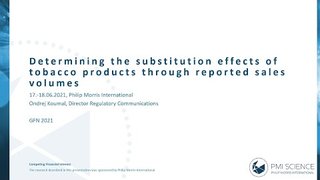Harm Reduction Concept From Behavioral Physiology Perspective - Igor Pantić
Harmful habits and addictions are linked with distinctive cellular and molecular changes in the central nervous system resulting from a complex interplay between the brain, environment, and an individual's behavior. The alterations in the brain's reward pathways that are connected to the modified dopamine neurotransmission make it increasingly difficult for individuals to control their harmful behavior. Harm reduction concept from a behavioral physiology viewpoint may aim to recognize and address various underlying motivations and reinforcing factors that hinder an individual's ability to completely and abruptly stop harmful behavioral patterns. Abrupt cessation, gradual reduction or transition to other behavioral patterns may manifest in substantially different neurobiological mechanisms and processes. Hereby, we discuss recent research on neurobiological and neurochemical phenomena linked to sudden and abrupt cessation of harmful behaviors, as well as the phenomena observed during experimental conditions that resemble harm reduction strategies.




